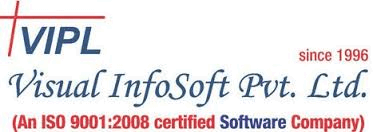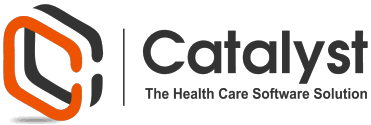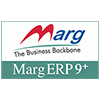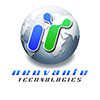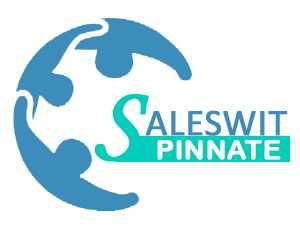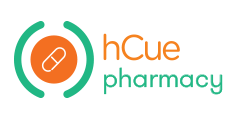Yes, most modern medical store software is compatible with a variety of devices and platforms. Users benefit from additional flexibility and convenience because they may access the program from laptops, tablets, or cellphones. Furthermore, many medical store software solutions are cloud-based, allowing them to be accessed from any internet-connected device, regardless of operating system. This eliminates the need for extra installations and updates on various devices.
List of 20 Best Medical Store Software
iBody Academy Client Management solution for extended healthcare practices of all sizes. Effortlessly schedule appointments based on clinic hours and staff availability, with service prices automatically added to invoices upon client check-in. Stream...Read More iBody Academy Client Management
Salvonic HIMS Cloud is a Health Care Software that provides a comprehensive solution for all areas of hospital management. With advanced features such as OPD, IPD, E-Prescription, OT management, Billing, EMR, and Vaccination, this software caters to...Read More Salvonic HIMS Cloud
BillMan ERP is a GST enabled accounting software. Designed with a user-friendly interface, our software can be easily installed and used by anyone, without any prior accounting knowledge. Our latest version offers enhanced security, improved user-fri...Read More BillMan ERP
HealthLink Retail Pharmacy is aonline platform for retail and wholesale pharmacies. Powered by advanced technology, HealthLink allows for seamless collaboration among multiple users and locations. Discover the convenience and efficiency of this compr...Read More HealthLink Retail Pharmacy
OpenMRS Medical Billing Software is a platform in the healthcare industry, known for its utilization of open standards and advanced technologies. It is a popular choice for managing medical information in developing countries, offering endless potent...Read More OpenMRS
Visual Chemist, the premier software trusted by independent pharmacists since 1999. Our top-rated solution has a strong reputation for high-quality performance and exceptional support. Developed through collaboration with a wide network of pharmacist...Read More Visual Chemist
MediVision Gold Retail is a software tailored for Medical, Pharma, and Drug Shops. Simplify your daily tasks with advanced functionalities including point of sales, inventory control, and online billing. No more hassles of manual bookkeeping, as real...Read More MediVision Gold Retail
Wondersoft Shopaid, the premier retail solution designed for independent and high-volume outlets in retail chains. With its robust capabilities for point of sale, billing, store and warehouse management, and complete corporate office functions, Shopa...Read More Wondersoft Shopaid
OLAGST is an advanced ERP solution that simplifies billing, invoicing and accounting processes while being GST enabled. It supports multiple businesses and branches, with the ability to handle different currencies. The software offers over 100 manage...Read More OLA GST
Pharmiz is a pharmacy management software designed to streamline the daily operations of medical shop professionals. With its user-friendly interface, this efficient solution offers features such as invoicing, inventory tracking, accounting, and clie...Read More Pharmiz
CATALYST is a software that transforms information processing by merging traditional paper-based methods with advanced technology. This innovative software offers customizable text and email alerts, optimizing patient care and simplifying workflow fo...Read More CATALYST
Marg ERP9+ Medical Billing Software is solution for efficient pharmacy management. Our software offers advanced features and a user-friendly interface, making prescription management, drug handling, and dispensing tasks a streamlined process. Transfo...Read More Marg ERP9+ Medical Billing Software
AumOLO is a Mobile and Web App crafted exclusively for Grocery Retailers and Medical Store owners. This customizable App can be branded with the retailers name and accessed both on mobile and as a website. Empower your customers with the ease of onli...Read More AumOLO
Halemind, a Electronic Health Record and Hospital Management System. Experience streamlined operations and real-time data for enhanced efficiency in your daily healthcare operations. With its advanced connectivity, Halemind offers invaluable insights...Read More Halemind
Electras EMR is a state-of-the-art electronic medical record system that streamlines the process of recording, updating, and managing an individuals health information. Developed specifically for healthcare organizations, this EMR module offers a use...Read More Electra's EMR
BI Pharma Assist - a software that streamlines retail pharmacy operations. This user-friendly solution offers advanced features and seamless functionality, enhancing the experience for both practitioners and customers. Say goodbye to pharmacy managem...Read More BI Pharma Assist
i-Medicare is a software solution developed by Neovante, designed specifically to streamline the management of healthcare organizations. Our all-in-one platform integrates multiple modules to provide optimal efficiency and support for major healthcar...Read More i-Medicare
Saleswit Pinnate is a CRM solution designed specifically for manufacturers, suppliers, and traders in the medical and surgical equipment industry. Our all-in-one platform provides a seamless experience for research, prototyping, maintenance, and othe...Read More Saleswit Pinnate
hCue Pharmacy is the pinnacle of Point of Sale Software in India, catering to over 1000 delighted users. Our comprehensive Medical Store Software simplifies inventory management, billing, and user management, all under one user-friendly interface. Wi...Read More hCue Pharmacy
Shubham Medical Store Software solution for seamlessly managing stock, accounting, and invoicing in your medical store. Our software is specifically designed for desktop use and web-based business portals, utilizing Windows technologies. It is the id...Read More Shubham
Learn More About Medical Store Software
- What Is Medical Store Software?
- What Are The Recent Trends In Medical Store Software?
- Benefits Of Using Medical Store Software
- Important Factors To Consider While Purchasing Medical Store Software?
- What Are The Key Features To Look For In Medical Store Software?
- Why Do Businesses Need Medical Store Software?
- How Much Time Is Required To Implement Medical Store Software?
- What Is The Level Of Customization Available In Medical Store Software?
- Which Industries Can Benefit The Most From Medical Store Software?
- Conclusion
What Is Medical Store Software?
Medical store software is a specific technology solution developed to improve the efficiency and management of a medical shop or pharmacy. It is a complete software system that integrates numerous modules to digitize procedures such as inventory management, sales, invoicing, patient information, and prescription management. Simply put, it is a digital management solution that automates and improves the overall efficiency and effectiveness of a medical store's operations.
Inventory management is an important function of medical store software, allowing users to track and manage stock levels of medications, medical supplies, and equipment. This feature guarantees that the store always has enough inventory and prevents stockouts or overstocking. It also aids in the generation of automated warnings for low stock products, reducing the need for manual stock inspections and saving valuable time.
In addition to inventory management, medical shop software has a billing and sales feature. This automates the billing process and produces accurate electronic bills for customers. It also keeps track of all sales transactions, making it easy to monitor and manage finances. Another important feature of medical store software is its capacity to consolidate patient data and medication administration.
This feature enables users to save patient information, medical history, and prescriptions in a secure digital database. It eliminates the need for actual prescription books and lowers the possibility of errors caused by handwriting. It also gives easy access to patient records, allowing pharmacists to provide accurate and timely medicine to patients.
Furthermore, medical store software frequently contains modules for accounting, report production, and even interaction with external systems like insurance companies and electronic medical records (EMR). These capabilities assist business owners in quickly managing their money, creating analytical data, and smoothly integrating with other healthcare systems.
Overall, medical store software provides a comprehensive solution for organizing and automating the numerous procedures of a medical store. It not only saves time and decreases human mistake, but it also boosts overall productivity and customer happiness. As a result, it is an excellent investment for any medical store or pharmacy wishing to improve their operations and give high-quality services to their clients.
What Are The Recent Trends In Medical Store Software?
With the growing use of technology in the healthcare industry, medical store software has become a crucial tool for managing inventory, sales, and customer data. In recent years, various changes in medical store software have emerged, transforming the way pharmacies and medical shops function.
Let us look at some of the latest trends in medical store software that buyers should be aware of.
1. Cloud-Based Solutions: The advent of cloud computing has had a tremendous impact on the medical store software market. Cloud-based solutions provide a low-cost and convenient way to manage and access data, removing the need for physical servers and on-premise software installation. This development has also resulted in a surge in remote access capabilities, which allow pharmacists to access software and data from anywhere and at any time.
2. Data Protection Emphasis: As concerns about data breaches and cyber threats develop, medical store software has placed a strong emphasis on data protection. Buyers should search for software that includes advanced security features such as encryption, user authentication, and data backup to safeguard patient confidentiality.
3. Integration With E-prescription Systems: Many countries now use e-prescription systems. As a result, there has been a greater integration of medical store software with e-prescription systems. This connection enables continuous communication between doctors, patients, and pharmacies, lowering the risk of errors and increasing the overall efficiency of the medicine dispensing process.
4. Automate Routine Processes: Manual processes such as inventory management, order processing, and billing can be time-consuming and error-prone. Medical store software with automated capabilities can streamline these processes, allowing pharmacists to devote more time to patient care. Buyers should search for software that includes barcode scanning, automated stock notifications, and invoicing to increase efficiency and accuracy.
5. Mobile Applications: The use of mobile applications in the healthcare business is continuously growing. Pharmacists can use medical store software with a mobile app to manage their stores, track inventory, and process orders while on the go. This style has gained popularity, particularly during the COVID-19 pandemic, when remote work and social separation have become the new standard.
Benefits Of Using Medical Store Software
Medical store software is a vital tool for any pharmacy or medical store that wants to streamline operations and boost productivity. It is a digital solution for managing inventory, sales, and other aspects of operating a medical business. Medical store software has grown in popularity as technology has advanced, and with good cause.
In this buyer's guide, we'll go over the multiple advantages of adopting medical store software and why it's a good investment for your business.
1. Automates Inventory Management: One of the most significant advantages of employing medical store software is the automation of inventory management. It monitors stock levels, expiration dates, and sends warnings when things need to be refilled, lowering the chance of running out of important medications. This saves time and reduces the possibility of human error, ensuring that your business is always fully stocked.
2. Streamlines Sales Process: Medical store software makes the sales process more efficient and simplified. It enables speedier billing, correct pricing, and easy recovery of customer data. This, in turn, enhances customer service and happiness, resulting in more sales and repeat business.
3. Improves Data Management: Medical store software helps you to store and arrange a large amount of data in a centralized system. This data may contain patient information, prescription details, and sales reports. With this information at your fingertips, you can make more educated decisions about inventory management, pricing, and marketing initiatives.
4. Improves Accuracy And Eliminates Errors: Manual procedures are prone to errors, which result in incorrect inventory counts, pricing, and client information. Medical store software avoids these errors by automating procedures, lowering the possibility of mistakes, and maintaining precision in all operations.
5. Improves Security And Compliance: Medical shops handle sensitive information, therefore security and compliance are major priorities. Medical store software includes features like role-based access, data encryption, and audit trails to ensure the protection of confidential data and compliance with industry requirements.
6. Improves Overall Efficiency: Medical store software increases your business's overall efficiency by automating numerous operations and giving reliable data. It frees up staff time that can be used for other important duties, such as improving customer service or developing expansion initiatives.
Important Factors To Consider While Purchasing Medical Store Software?
When selecting medical store software, a variety of variables should be considered to ensure that you receive the best option for your specific needs. As a healthcare professional, the software you use is important to keeping your medical practice running smoothly and successfully.
Here are the key factors to consider before making your decision:
1. Customization And Compatibility: Because each medical store has unique requirements, the software you select should be adjustable to match those demands. It should also be able to work seamlessly with your current systems and hardware, avoiding any disturbances throughout the transition.
2. User-Friendly Interface: The software's interface should be easy to use and understand. This ensures that your personnel can swiftly understand and apply the program, minimizing disruptions to your regular operations.
3. Features And Functionality: Evaluate the software's features and functionalities to ensure they suit your requirements. Key features to look for include inventory management, sales and purchase tracking, order processing, billing and invoicing, and expiration date tracking.
4. Security And Compliance: Because your medical business handles sensitive patient information, you must ensure that the software you use is secure and HIPAA compliant. This will keep your patients' information safe from potential security breaches.
5. Service And Training: Choose a software vendor who offers solid customer service and training. This ensures that you have access to assistance whenever you run into problems or need help using the product effectively.
6. Scalability: As your medical store grows, so will your software requirements. As a result, it is vital to choose software that is scalable and can handle future growth. This will save you both time and money when updating to new software in the future. When choosing medical store software, keep these important considerations in mind to make an informed decision. Remember to thoroughly research alternative options, read customer reviews, and even request demos before making a final decision. This ensures that you choose the best software for your individual requirements, allowing your medical business to run smoothly and efficiently.
What Are The Key Features To Look For In Medical Store Software?
When it comes to running a profitable medical business, efficient and dependable software is essential. It aids with inventory and sales management, as well as accuracy and operational efficiency. As a buyer, you must understand the major characteristics to look for in medical store software in order to make an informed decision.
Here are some important features to consider:
1. Inventory Management: Managing stock is crucial in every retail operation, including medical stores. Look for tools that can help you track and manage your inventory, automate reordering, and create real-time reports. This function will ensure that you never run out of important drugs or medical supplies, preventing a potential loss of revenue.
2. Point Of Sale (POS) System: A reliable POS system is essential for any medical shop software. It allows you to execute sales quickly and correctly, accept a variety of payment methods, and issue receipts. To ensure optimal efficiency, look for a user-friendly interface that can manage high-volume transactions.
3. EHR Integration: Medical store software that works with EHR systems gives you access to patient information, prescription history, and refill requests. This feature saves time and decreases medicine distribution errors, hence enhancing patient safety.
4. Barcode Scanning: The barcode scanning functionality speeds up and simplifies the process of scanning and updating inventory. This function allows you to rapidly track drug expiration dates, batch numbers, and serial numbers, making inventory management and accuracy easier.
5. Real-Time Analytics And Reporting: The capacity to monitor sales, inventory, and profit margins in real time is critical. Look for software that creates reports and analytics, offering information about sales patterns, inventory management, and financial performance.
6. Cloud-Based Access: Cloud-based software allows you to access your data remotely, making it easy to operate your medical store from any location. This functionality also makes it easier to collaborate with vendors and backup and retrieve data.
7. Multi-Store Management: If you have many medical stores, search for software that can handle all of them from a single platform. This tool provides uniformity in inventory management and reporting by offering a consolidated view of your operations. As you look at different medical store software alternatives, keep these crucial qualities in mind to ensure that you choose the best one for your company. Remember to seek for a user-friendly interface, scalability, and dependable customer support. With the correct software, you can boost your medical store's productivity, accuracy, and profitability.
Why Do Businesses Need Medical Store Software?
Businesses use Medical Store Software because of its numerous advantages and features tailored exclusively to the demands of medical stores. This specialized software simplifies and automates operations like inventory management, patient record maintenance, and billing, resulting in greater efficiency and accuracy. It also improves customer service by enabling speedier checkout and prescription processing.
One of the primary benefits of using Medical Store Software is the ability to track and manage inventory levels. This is critical for medical businesses since they frequently deal with a diverse range of prescription drugs and equipment with expiration dates and fluctuating supplier pricing. Businesses can use the program to keep track of their stock levels, eliminate waste, and predict potential supply gaps, resulting in cost savings and preventing stock shortages.
Another important characteristic of Medical Store Software is its capacity to store patient records. It enables businesses to safeguard and manage patient information, including as prescriptions and allergies. This not only enhances patient care quality, but also ensures that data privacy requirements are followed. Medical Store Software also contains billing and invoicing functions, which help firms manage their funds.
The program generates correct bills based on the products sold and their corresponding costs, eliminating the possibility of errors and providing businesses with a more efficient billing procedure. Furthermore, the program may provide detailed reports and statistics, giving firms significant insights into how they operate. This can help with data-driven decision-making, business process optimization, and finding opportunities for improvement.
Some Medical Store Software includes integrated point-of-sale systems, allowing businesses to conduct sales and accept a variety of payment options. This not only speeds up the checkout process, but it also helps with sales tracking and cash flow management. Finally, Medical Store Software can help firms streamline their regulatory compliance. The software can assist in keeping correct records and managing compliance standards, which can be difficult for medical stores.
How Much Time Is Required To Implement Medical Store Software?
The time required to implement medical store software varies based on a number of factors, including the software's complexity, the size of the shop, and the level of customization necessary. On average, a simple implementation can take between 2-4 weeks. The initial stage in adopting medical store software is to collect all relevant information and data from the store, such as patient records, inventory listings, and billing information.
This process can take from a few days to a week, depending on the size of the store. Next, the software vendor will setup and personalize the software to meet the store's specific needs. This process may take 1-2 weeks, depending on the intricacy and level of customization required. Once configured, the program must be tested to confirm that it functions properly and satisfies the store's requirements.
This testing process can last 1-2 weeks, depending on the amount of tests required and any issues that develop. The final stage is to teach the store personnel how to utilize the new software. This training can last anywhere from a few days to a week, depending on the software's complexity and the amount of personnel to be trained.
Overall, the typical time to develop medical store software is 2-4 weeks. However, take in mind that each store's implementation process will be unique, and more sophisticated or substantially customized software may require additional time. Before deciding which medical store software to invest in, contact with the software vendor and understand the installation timetable.
What Is The Level Of Customization Available In Medical Store Software?
Medical store software provides varying levels of flexibility to meet the specific demands of different enterprises. The level of customization varies depending on the software vendor, but in general, medical store software offers three levels of customization: basic, moderate, and advanced.
1. Basic Customization: Medical shop software lets you to personalize the interface by adding your logo, altering colors, and rearranging the layout to your liking. You may also configure user permissions and access levels for your employees. This level of customization is often accessible in most software packages and is appropriate for small and medium-sized organizations.
2. Intermediate Customization: The intermediate level of customization provides more flexibility for tailoring the software to your individual needs. This involves adding and removing features, designing custom reports, and integrating third-party apps. For example, you can integrate accounting software to improve financial procedures or add a barcode scanner for speedier inventory management. This level of customization is appropriate for developing businesses with complex requirements.
3. Advanced Customization: Medical store software offers advanced customization to organizations with extremely unique needs. This level of customization entails developing custom modules or functionalities that are specific to your organization. For example, if you own a compounding pharmacy, you can tailor the software to manage compounding procedures more efficiently. This level of customization costs more time and money, but it can dramatically improve your business's operations and efficiency.
Before purchasing medical shop software, it is critical to consider the level of customisation available. Consider your present and future requirements to decide the level of customization that is appropriate for your firm. It is also critical to maintain open lines of communication with the software vendor to ensure that your customized needs are addressed successfully. With the correct level of customization, medical store software can become a great tool for your company, allowing you to streamline operations and improve patient care.
Which Industries Can Benefit The Most From Medical Store Software?
Medical store software transforms healthcare enterprises. This program is specifically designed for pharmacies, clinics, and other medical businesses. It streamlines operations, boosts efficiency, and improves overall patient care. However, which sectors will benefit the most from deploying medical store software?
Let's have a closer look.
1. Pharmaceuticals: Pharmacies can undoubtedly profit immensely from medical store software. This software, which includes functions such as inventory management, prescription monitoring, and billing, assists pharmacies in seamlessly managing their everyday operations. This results in a more streamlined approach that reduces errors and saves time.
2. Clinics: Medical shop software can be quite beneficial to small and medium-sized clinics. This software, which allows clinics to manage patient information, arrange appointments, and handle payments, helps them improve health care while remaining efficient. It also allows clinics to easily connect with pharmacies about prescriptions and refills.
3. Hospitals: Because large hospitals handle a large number of patients, an organized and effective system is required. Medical store software enables hospitals to manage their in-house pharmacy and conveniently arrange drug orders with external pharmacies. Additionally, it can help with patient billing and insurance claim administration.
4. Long-Term Care Establishments: Long-term care facilities, such as nursing homes and assisted living communities, can benefit greatly from medical store software. It facilitates medication administration for numerous people, keeps correct records, and alerts for potential drug interactions.
5. Specialty Clinics: Medical store software can also help specialty clinics like as mental health, dermatology, and oncology. These clinics frequently have special medicine requirements, and the software can help with specific inventory management, dosage tracking, and prescription renewals.
Conclusion
To summarize, selecting the appropriate medical store software is an important decision for any healthcare professional. With the ever-changing technology improvements in the medical business, having a dependable and effective software solution is critical for optimizing operations, improving patient care, and increasing income.
You can narrow down your selections and choose the greatest fit for your specific needs by taking into account crucial variables such as compatibility, features, cost, customer service, and usability. We hope this buyer's guide has provided you with useful information and enabled you to make an informed selection. Invest in high-quality medical store software and learn how it might benefit your firm.
Medical Store Software FAQ's
Can Medical Store Software Be Accessed Across Multiple Devices And Platforms?
Is Medical Store Software Future-Proof And Adaptable To Emerging Technologies Like AI, Blockchain Or IoT?
Yes, most medical store software today is future-proof and adaptable to emerging technologies such as artificial intelligence, blockchain, and Internet of Things. These software solutions are intended to evolve and integrate with emerging technology in the healthcare business.
With the rise of digital transformation, medical store software is constantly updated to remain current and give users with the most recent features and capabilities. This ensures that medical stores can keep up with technological changes while providing efficient services to their customers.
Is There A Free Trial Offered To Assess Medical Store Software Before Committing?
Yes, many medical store software vendors provide a free trial period in which users can try the product before making a purchase. This allows users to evaluate the software's features, interface, and overall functionality. During the trial, users can also contact the supplier with any queries or complaints. This allows for more informed decision-making and guarantees that the software fulfills the medical store's specific requirements.
Does Medical Store Software Offer Data Security Features And Meet Regulatory Compliance Standards?
Yes, most medical store software includes data security features including encryption, secure login, and backup to safeguard sensitive patient information. These products are also intended to meet with regulatory standards such as HIPAA and GDPR, ensuring that patient data is handled and stored securely. Furthermore, regular software updates and maintenance help to ensure data security and compliance.
Can Medical Store Software Integrate Seamlessly With Existing Tools And Platforms?
Yes, most modern medical store software is designed to work smoothly with existing tools and platforms, making the transfer to a new system simple and effective. APIs and cloud-based solutions enable medical store software to easily interface with other systems such as accounting software, online ordering platforms, and inventory management systems. This enables for a more simplified and effective approach, which saves time and reduces errors.






